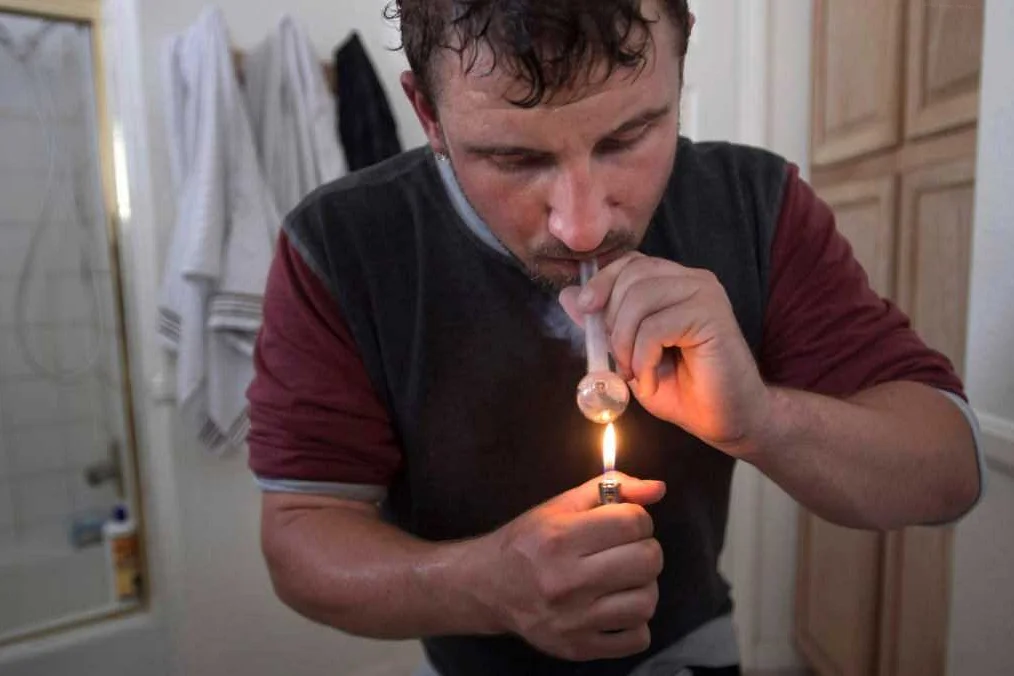The Growing Drug Dependency Among Children and Teenagers in St. Petersburg: A Lack of Support and Solutions
The city of St. Petersburg is facing a dire situation with over a thousand children and teenagers who are addicted to drugs, and unfortunately, there are no resources or programs available to help them. This article sheds light on the growing drug problem among the youth in St. Petersburg and the urgent need for action to address this crisis.
Drug dependency among children and teenagers has become an alarming issue in St. Petersburg. With the city’s growing population and increasing urbanization, young individuals are increasingly exposed to various substances that can potentially lead to addiction. The urgency of this problem cannot be overstated, as it not only jeopardizes the futures of these young individuals, but also poses a threat to the overall well-being and stability of our society.
The rise of drug dependency among children and teenagers in St. Petersburg is a complex issue that demands immediate attention and effective intervention. It is crucial that we understand the underlying causes and address them with the necessary measures to prevent further escalation of this problem.
One of the primary factors contributing to drug dependency among children and teenagers in St. Petersburg is peer influence. As adolescents strive to fit in and establish their social identities, they are susceptible to succumbing to the pressures and temptations presented by their peers. The desire to belong often leads them down a dangerous path of experimenting with illicit substances, which can quickly spiral into dependency.
Drug Dependency among Children and Teenagers in St. Petersburg

Drug dependency among children and teenagers in St. Petersburg has become an urgent issue that requires immediate attention and proper intervention. The city has seen a steady rise in substance abuse among young individuals, with devastating consequences for their health, well-being, and future prospects.
There are several factors contributing to the increasing drug dependency rates among children and teenagers in St. Petersburg. Peer pressure, easy access to drugs, lack of parental involvement, and a sense of hopelessness are just a few of the factors that have contributed to this alarming trend.
The consequences of drug dependency among children and teenagers are far-reaching and detrimental. It not only affects their physical and mental health but also negatively impacts their academic performance and social relationships. Drug abuse can lead to a disruption in their personal development and hinder their ability to lead fulfilling lives.
In order to address this issue effectively, proper intervention strategies need to be implemented. This includes raising awareness about the dangers of drug abuse through educational programs in schools and communities. It is important to provide children and teenagers with the necessary information and skills to make informed decisions and resist peer pressure.
Additionally, there is a need for increased access to rehabilitation programs and support services for those struggling with drug dependency. Counseling, therapy, and other forms of treatment can help individuals overcome their addiction and provide them with the necessary tools for long-term recovery.
The government and relevant authorities also play a crucial role in combating drug dependency among children and teenagers. Strengthening law enforcement efforts to crack down on drug trafficking and implementing stricter regulations can help reduce the availability of drugs in the city. Adequate funding and resources should be allocated to support prevention and intervention programs.
In conclusion, drug dependency among children and teenagers in St. Petersburg is a pressing issue that requires immediate attention. Through effective intervention strategies, increased awareness, and support services, we can work towards creating a healthier and safer environment for the future generations.
The Alarming Rise of Substance Abuse
Substance abuse among children and teenagers in St. Petersburg has become an increasingly concerning issue in recent years. The use of drugs and other addictive substances has seen a steady rise, posing a significant threat to the health and well-being of the younger population.
One of the key factors contributing to the alarming rise of substance abuse is the easy availability of drugs. With the increasing number of drug dealers and illicit drug markets, children and teenagers are exposed to a wide range of addictive substances at an unprecedented rate.
Furthermore, societal and peer pressure also plays a significant role in the surge of substance abuse among the youth. Many young individuals feel compelled to experiment with drugs as a way to fit in or escape from their personal problems. The lack of proper guidance and support exacerbates this issue, leading to a vicious cycle of addiction.
The consequences of substance abuse among children and teenagers are severe. Not only does it have devastating effects on their physical and mental health, but it also hampers their academic performance and overall development. Additionally, substance abuse increases the risk of engaging in criminal activities and can tear families apart.
Addressing the alarming rise of substance abuse requires a comprehensive approach involving various stakeholders. It is crucial for parents, educators, healthcare professionals, and policymakers to come together and implement effective intervention strategies. Early education and awareness programs, counseling services, and rehabilitation centers must be made readily available to provide the necessary support and guidance to those struggling with substance abuse.
It is of utmost importance that society recognizes the urgency of this issue and takes proactive measures to prevent and treat drug dependency among children and teenagers. By working together, we can create a safer and healthier environment for the younger generation, ensuring their well-being and future success.
The Negative Impact on Physical and Mental Health

Drug dependency among children and teenagers in St. Petersburg has a significant negative impact on their physical and mental health. Substance abuse not only affects their overall well-being but also hampers their development and future prospects.
Physically, drug dependency can lead to a host of health problems. The use of illicit drugs can damage vital organs such as the liver, lungs, and brain, causing long-term health complications. Additionally, drug abuse can weaken the immune system, making individuals more susceptible to illnesses and infections.
Mentally, drug dependency can have severe consequences. Adolescents who abuse drugs are more likely to develop mental health disorders such as depression, anxiety, and psychosis. Substance abuse can also impair cognitive functioning, leading to difficulties with memory, attention, and problem-solving skills. These negative effects can hinder academic performance and disrupt personal relationships.
Furthermore, drug dependency can lead to behavioral changes, including aggression, impulsivity, and a lack of self-control. These behaviors can contribute to a cycle of substance abuse and increase the risk of engaging in criminal activities.
The negative impact on physical and mental health highlights the urgent need for proper intervention and support systems for children and teenagers struggling with drug dependency in St. Petersburg. Addressing this issue requires a comprehensive approach that includes education, prevention programs, counseling, and access to treatment facilities. By prioritizing the well-being of our youth, we can work towards creating a healthier and drug-free future for the city.
The Role of Peer Pressure and Social Media
Peer pressure and social media play a significant role in the drug dependency among children and teenagers in St. Petersburg. Peer pressure refers to the influence that friends and peers have on an individual’s behavior, choices, and decisions. When it comes to drug use, young individuals are easily influenced by their peers, who may encourage or pressure them to experiment with drugs. This can be particularly challenging for children and teenagers who are seeking acceptance and approval from their peers.
In today’s digital age, social media platforms have become an integral part of young people’s lives. These platforms provide a constant stream of information and exposure to various lifestyles and behaviors, including drug use. Social media can glamorize and normalize drug use, making it seem cool or trendy. Additionally, young individuals may feel pressured to fit in or keep up with certain trends or social groups, which can further contribute to their susceptibility to drug dependency.
Moreover, social media platforms also serve as a means of communication and networking for drug dealers. Through private messaging and hidden online communities, teenagers can easily access and purchase drugs, often without their parents’ knowledge. The anonymity and ease of buying drugs through social media make it difficult to control and prevent drug dependency among young individuals.
It is crucial for parents, educators, and society as a whole to recognize the influence of peer pressure and social media on drug dependency among children and teenagers. Efforts should be made to educate young individuals about the potential dangers of peer pressure and the misleading nature of social media. Providing them with the necessary tools to resist peer pressure and make informed decisions can help prevent drug dependency and promote a healthier and safer environment for the youth of St. Petersburg.
The Lack of Adequate Support and Treatment Programs

The issue of drug dependency among children and teenagers in St. Petersburg is a pressing problem that requires urgent attention. However, one of the major challenges in addressing this issue is the lack of adequate support and treatment programs available in the city.
Many children and teenagers who are struggling with drug dependency are left without the necessary resources and guidance to overcome their addiction. The existing support and treatment programs often fall short in providing comprehensive and effective interventions for this vulnerable population.
One of the main reasons for the lack of adequate support and treatment programs is the limited funding allocated to this area. Without sufficient financial resources, it becomes challenging to establish and maintain the necessary infrastructure, personnel, and resources required to address drug dependency effectively.
Another contributing factor is the stigma associated with drug addiction, particularly among young people. This stigma may discourage individuals from seeking help or may result in inadequate support being provided. It is crucial to break down these barriers and create a safe and supportive environment for children and teenagers to access the help they need.
In addition to funding and stigma, there is also a need for improved coordination and collaboration among various stakeholders, including government agencies, healthcare providers, schools, and community organizations. By working together, these entities can develop comprehensive and integrated support systems that address the specific needs of children and teenagers struggling with drug dependency.
Furthermore, there is a need for more widespread education and awareness campaigns to promote understanding and empathy towards drug addiction among children and teenagers. By increasing awareness, society can better support and advocate for the development of adequate support and treatment programs.
In conclusion, addressing drug dependency among children and teenagers in St. Petersburg requires the establishment of adequate support and treatment programs. By addressing the lack of funding, reducing stigma, improving coordination, and increasing awareness, we can create a more supportive environment for these vulnerable individuals.